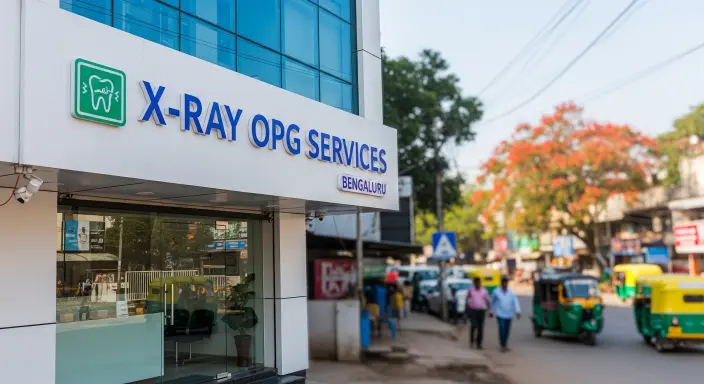
enquiry@ecotowndiagnostics.com
Send Your Mail 24/7 Support
Mon - Sat 6:30AM - 10:00PM
Sunday 6:30AM - 3:00PM
enquiry@ecotowndiagnostics.com
Send Your Mail 24/7 Support
Mon - Sat 6:30AM - 10:00PM
Sunday 6:30AM - 3:00PM

Pregnancy is a beautiful journey filled with anticipation, joy—and yes, a few medical appointments along the way. One of the most vital tools in ensuring the health and development of your baby is the ultrasound scan. Whether you’re a first-time mom or expanding your family, understanding the different types of scans and their timing can help ease anxiety and prepare you for each stage.
If you’re considering an ultrasound scan in Bangalore, this guide will walk you through everything you need to know—from the types of scans to expect, when they’re scheduled, and what they reveal about your baby’s growth and wellbeing.
An ultrasound scan, also called a sonogram, uses high-frequency sound waves to create real-time images of the inside of your body. During pregnancy, it provides a detailed look at your baby’s development, the placenta, amniotic fluid, and other important structures.
These scans are:
The Indian Ministry of Health and Family Welfare and the World Health Organization both recommend ultrasound as a reliable and safe method to monitor fetal development.
Ultrasound scans are much more than just a chance to see your baby. They serve critical medical functions, including:
Each trimester of pregnancy comes with its own unique ultrasound scans, each serving a specific purpose. Here’s a breakdown by type and timing:
Purpose: Confirms pregnancy, fetal heartbeat, and gestational age
Type: Transvaginal or abdominal
What to Expect:
Done early in pregnancy, the dating scan verifies the baby’s location (inside the uterus), measures fetal length, and estimates the due date. This scan can also detect ectopic pregnancies or early miscarriages.
Purpose: Assesses risk for chromosomal conditions like Down syndrome
Type: Abdominal
What to Expect:
This scan measures the fluid at the back of your baby’s neck. A thicker measurement may indicate a higher risk of genetic disorders, often followed by a first-trimester combined screening test (blood test + NT scan).
Also Called: Level 2 scan or morphology scan
Purpose: Detects structural anomalies in baby’s organs and limbs
Type: Abdominal
What to Expect:
This detailed scan checks your baby’s brain, spine, heart, kidneys, limbs, face, and abdominal organs. It also confirms the position of the placenta and amniotic fluid level. Most parents find out the baby’s sex during this scan—though gender disclosure is illegal in India under the PCPNDT Act.
Purpose: Monitors fetal growth and weight
Type: Abdominal
What to Expect:
Doctors assess whether the baby is growing at a normal rate, estimate fetal weight, and look for any late-developing anomalies. It’s crucial for high-risk pregnancies or when mothers have gestational diabetes, hypertension, or prior complications.
Purpose: Assesses blood flow in the umbilical cord, placenta, and fetal brain
Type: Abdominal
What to Expect:
This scan helps evaluate fetal well-being, especially if the baby is smaller than expected or if there’s a history of complications. It’s commonly used in late-stage or high-risk pregnancies.
Purpose: Evaluates fetal position and readiness for delivery
Type: Abdominal
What to Expect:
Checks whether the baby is in the head-down position and whether the placenta and amniotic fluid levels are optimal for labor. It may help plan your delivery method (normal vs. C-section).
Here’s a trimester-wise scan schedule to guide you:
| Trimester | Week Range | Scan Type |
| First | 6–14 weeks | Dating + NT scan |
| Second | 18–22 weeks | Anomaly scan |
| Third | 28–40 weeks | Growth scan, Doppler scan, Term scan |
Consult with your gynecologist or obstetrician, as your schedule may vary depending on your medical history.
Bangalore is home to a wide range of diagnostic centers and maternity hospitals offering advanced ultrasound facilities. When choosing a center, consider:
Popular centers for ultrasound scan in Bangalore include:
Pregnancy is a time of hope, love, and a little bit of anxiety. Ultrasound scans help bridge the gap between you and your growing baby—offering reassurance, critical medical insights, and unforgettable first glimpses.
Whether you’re scheduling your first ultrasound scan in Bangalore or preparing for your final one before delivery, knowing what to expect can make the experience smoother and more meaningful.
Take the time to choose a trusted diagnostic center, follow your doctor’s schedule, and cherish each step of the journey.